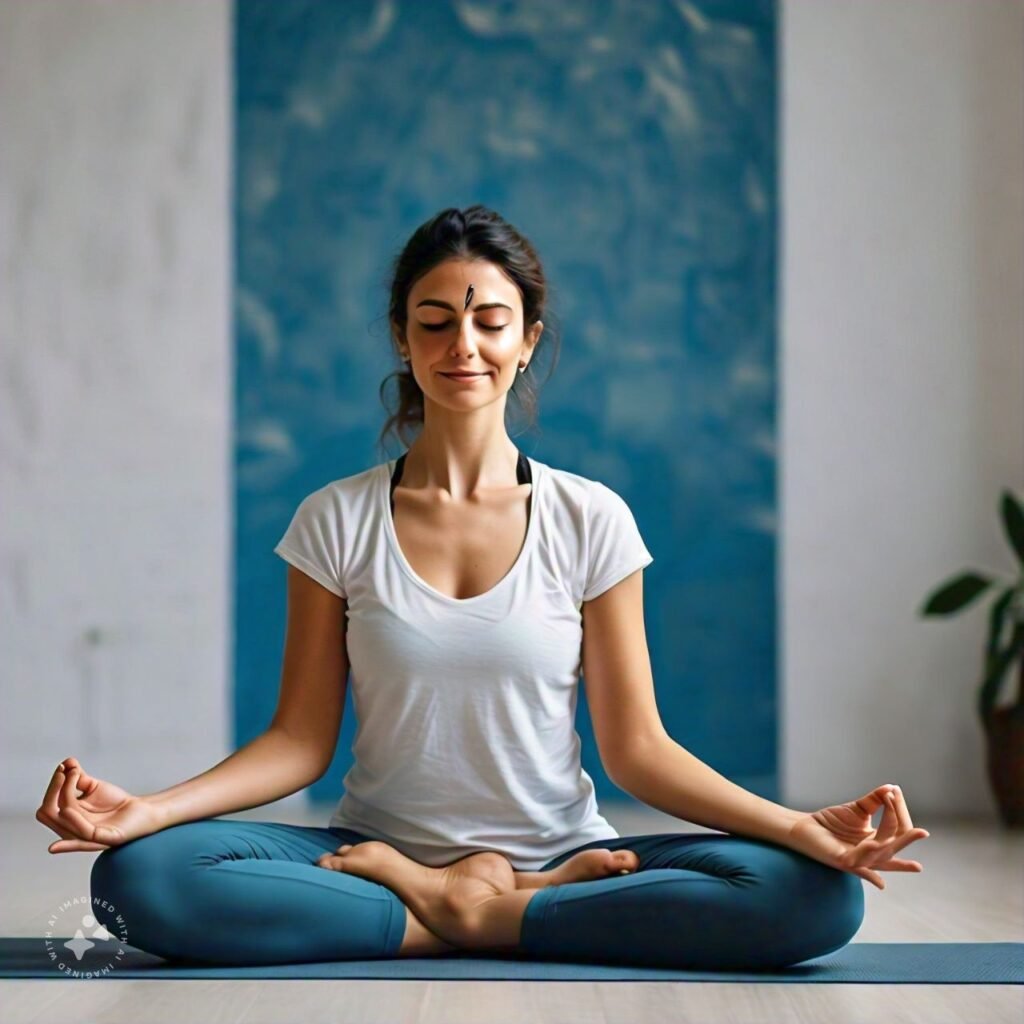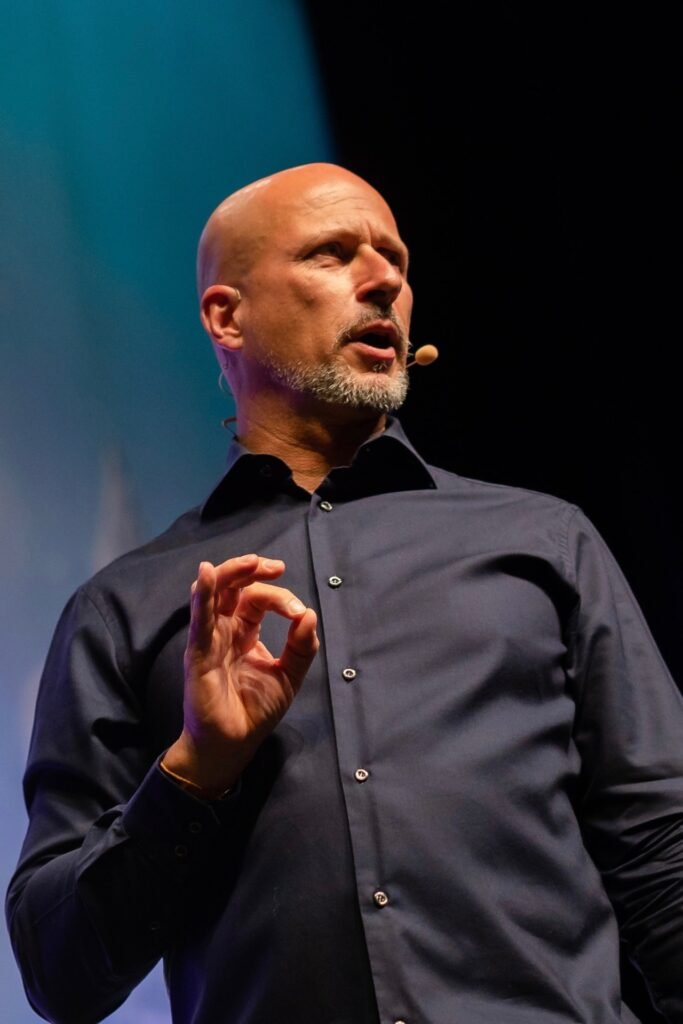
Understanding Stress and Its Impact
In today’s fast-paced world, stress has become a common companion for many, but it doesn’t have to be a permanent one.
Stress is a natural response to the challenges we face, but when it becomes overwhelming, it can take a toll on our physical and mental health. Common sources of stress include work pressures, financial concerns, relationship struggles, and even the constant buzz of social media. If left unchecked, stress can lead to burnout, anxiety, and other serious health issues. That’s why managing stress is essential for maintaining balance and peace of mind.
The Importance of Self-Care
Taking care of yourself is not a luxury, but a necessity for maintaining mental balance and reducing stress.
Self-care is about making yourself a priority, no matter how busy life gets. This includes getting enough rest, eating healthy, and taking time out for hobbies or activities that bring you joy. Self-care isn’t selfish; it’s an investment in your mental and emotional well-being. Simple habits like taking short breaks during the day, enjoying a warm bath, or reading a good book can drastically improve how you manage stress on a daily basis.


Mindfulness: Living in the Present Moment
Mindfulness is a powerful tool to calm the mind and bring your focus back to the present.
Mindfulness is the practice of being fully aware of your thoughts, feelings, and surroundings without judgment. It helps you stay grounded in the present rather than worrying about the past or future. Research shows that mindfulness reduces stress and anxiety while increasing self-awareness and emotional regulation. One easy way to incorporate mindfulness into your life is through meditation. You can also try mindful eating or taking mindful walks, focusing on your breath and the sensations around you.
Physical Activity: Move to Release Tension
Exercise is one of the most effective ways to combat stress and improve your overall mood.
When you exercise, your body releases endorphins, which are natural mood elevators. Physical activity also lowers the stress hormones like cortisol, helping you feel more relaxed. You don’t have to hit the gym for hours—simple activities like walking, yoga, or even dancing can make a significant difference. The key is consistency. Make movement a part of your daily routine to prevent stress from building up.


The Power of Deep Breathing
Something as simple as focusing on your breath can instantly calm your nervous system and reduce stress.
Deep breathing is an incredibly effective technique to lower stress because it helps calm the body’s fight-or-flight response. By taking slow, deep breaths, you activate your parasympathetic nervous system, which tells your body to relax. Try this simple breathing exercise: inhale slowly for four counts, hold your breath for four counts, and exhale for four counts. Repeat this cycle for a few minutes whenever you feel overwhelmed.
Creating a Relaxing Environment
Your environment plays a huge role in how you feel, so creating a space that promotes peace is essential.
Your surroundings can either contribute to your stress or help you unwind. Decluttering your space can instantly make you feel more in control and at ease. Consider using soft lighting, soothing scents like lavender, and calming sounds like nature sounds or soft music to create a peaceful atmosphere. Whether it’s a cozy corner in your home or your workspace, having a place where you can escape the chaos and relax is crucial for your mental well-being.


The Importance of a Balanced Lifestyle
Finding balance in your daily routine can prevent burnout and keep stress at bay.
A balanced lifestyle means making time for work, relaxation, and play. Prioritize a schedule that allows for rest, exercise, and hobbies. It’s also essential to manage your sleep and nutrition, as both directly impact your ability to handle stress. Poor sleep can lead to heightened anxiety, and a lack of proper nutrition can leave you feeling sluggish and irritable. Finally, don’t be afraid to set boundaries—learning to say no when you’re overextended is a critical part of protecting your mental health.
Connecting with Others: Social Support for Stress Relief
Sometimes, the best way to de-stress is by reaching out to someone who understands.
Humans are social beings, and connecting with others can significantly reduce stress. Whether it’s talking to a friend, joining a support group, or spending time with family, strong social connections help us feel understood and less alone. Don’t hesitate to lean on your support system when you’re feeling overwhelmed—talking through your problems or simply sharing a laugh can make a world of difference. Building and maintaining a strong network of relationships is one of the most effective ways to cope with stress.


Making Stress Management a Priority
While stress is inevitable, learning how to manage it is the key to achieving lasting peace of mind.
Stress is a part of life, but by implementing the strategies discussed, you can prevent it from controlling your mental and physical health. From practicing mindfulness to connecting with loved ones, these tools are available to you every day. Start small by incorporating one or two techniques into your routine, and gradually build up your stress management toolkit. By making stress relief a daily practice, you’ll create a calmer, more peaceful life where stress is no longer in the driver’s seat.
The Power of Focus in a Distracted World
In an age of constant distractions, the ability to focus has become one of the most valuable skills you can cultivate.
Whether it’s the buzzing of notifications, emails demanding immediate attention, or the endless pull of social media, distractions are everywhere. In this environment, the ability to focus has become a superpower. It allows you to work more efficiently, stay on top of your goals, and make a significant impact in your personal and professional life. But how do we cultivate focus when there’s so much competing for our attention? In this blog, we’ll explore practical strategies to sharpen your focus, manage your time, and make meaningful progress toward your goals.


Understanding the Science Behind Focus
To improve your ability to focus, it helps to understand how your brain works.
Your brain is wired to seek novelty, which is why distractions can be so appealing. However, focus relies on your brain’s ability to block out irrelevant stimuli and channel mental energy toward a single task. This process can be disrupted by multitasking, which divides your attention and reduces the quality of your work. Understanding that focus is like a muscle—something that needs to be trained and strengthened over time—can help you improve it. By managing your mental energy and recognizing factors that disrupt your concentration, you can create the conditions needed for deeper focus.
Setting Clear Goals: The Foundation for Focus
Without clear goals, it’s easy to lose direction and waste energy on low-priority tasks.
Clear goals are the foundation of focus. When you know exactly what you’re working toward, it becomes easier to direct your time and energy where it matters most. Setting SMART goals—Specific, Measurable, Achievable, Relevant, and Time-bound—gives you a roadmap for what needs to be done. Breaking these goals down into smaller, manageable tasks ensures that your focus is targeted and productive. With a clear sense of purpose and direction, you can stay on track, avoid distractions, and make consistent progress.


Eliminating Distractions: Creating an Environment for Deep Work
The fewer distractions you face, the more mental energy you can dedicate to what really matters.
One of the biggest barriers to focus is distraction. Whether it’s the constant ping of your phone or the lure of a busy office environment, distractions sap your ability to concentrate. Start by identifying what pulls you away from your work—social media, noisy surroundings, or unnecessary meetings. Once you’ve identified these, take steps to minimize them. Turn off notifications, set your phone to “Do Not Disturb,” or use apps that block distracting websites. Creating a dedicated, clutter-free workspace also helps. Set clear boundaries with those around you to protect your focus time, letting them know when you need to concentrate.
Time Management Techniques for Better Focus
Time management is essential for maintaining focus and making steady progress toward your goals.
Good time management is crucial for staying focused. One popular technique is the Pomodoro Technique, where you work in 25-minute focused intervals followed by short breaks. This method encourages you to stay on task without feeling overwhelmed by long stretches of work. Another approach is time blocking, where you schedule specific blocks of time for deep work, meetings, and breaks. This prevents your day from being overtaken by urgent but unimportant tasks. Prioritize your tasks using the Eisenhower Matrix, which categorizes them by importance and urgency, so you can focus on high-priority tasks first.


The Role of Breaks: Recharging Your Mental Energy
Taking regular breaks is just as important as focusing—your brain needs time to recharge.
It may seem counterintuitive, but taking breaks is crucial to maintaining focus over time. Your brain can only concentrate for so long before its performance starts to decline. Short, regular breaks give your brain a chance to recharge, improving both focus and creativity. Research suggests that the most effective breaks involve stepping away from screens, getting some fresh air, or engaging in light physical activity. Even five minutes of mindful breathing or stretching can help reset your focus and prevent burnout.
Mindfulness and Focus: Training Your Attention
Mindfulness trains your brain to stay present, making it easier to focus on the task at hand.
Mindfulness is a powerful tool for enhancing focus. By training your mind to stay present and fully engaged in the moment, you reduce the tendency to get lost in distractions. Simple mindfulness exercises, such as focusing on your breath or doing a quick body scan, can help sharpen your attention. The more you practice mindfulness, the more it becomes a natural part of your routine, allowing you to bring a deeper level of concentration to your work. Incorporating mindfulness practices, even for just a few minutes a day, can significantly improve your ability to stay focused.


Building Momentum: Small Wins Lead to Big Impact
Focusing on small wins builds momentum and helps you stay motivated over time.
When it comes to making an impact, small wins can be incredibly motivating. By breaking down larger goals into smaller, manageable tasks, you create opportunities to celebrate progress along the way. Each small achievement gives you a boost of confidence and energy, making it easier to tackle the next task. This momentum builds over time, allowing you to stay focused and motivated even when working on long-term projects. Recognizing and celebrating these small wins helps you stay on track and maintain the energy needed to make a bigger impact.
The Long-term Benefits of Focus
Mastering the art of focus is a journey that will not only improve your productivity but also help you make a meaningful impact.
Focus is a skill that pays long-term dividends, not just in terms of productivity but in the quality of work and personal satisfaction it brings. By setting clear goals, managing your time wisely, and creating a distraction-free environment, you can harness the power of focus to achieve more in less time. Combine these strategies with mindfulness and regular breaks, and you’ll be on the path to making a lasting impact in both your professional and personal life. The journey to better focus takes time and practice, but the rewards are well worth it.


Why Energy is Key to a Vibrant Life
Feeling drained and low on energy can make even the simplest tasks feel overwhelming, but living with more energy is within your reach.
Energy is the fuel that powers everything we do—from working and exercising to connecting with others and enjoying life. Yet, many people feel constantly tired or drained, struggling to find the energy they need to get through the day. Low energy affects your productivity, mood, and overall well-being, making it difficult to live a fulfilling life. Fortunately, there are many simple, natural ways to increase your energy levels. In this guide, we’ll explore effective strategies to help you live a more energetic and vibrant life.
Prioritize Quality Sleep
Good energy starts with quality sleep, yet many people overlook the importance of a consistent sleep routine.
Sleep is the foundation of good energy, but too many of us sacrifice sleep for work, socializing, or screen time. When you don’t get enough sleep, your body and brain struggle to function optimally, leading to fatigue, mood swings, and a lack of focus. To improve your sleep quality, create a consistent bedtime routine. Aim for 7-9 hours of sleep each night, and establish a calming pre-sleep ritual, like reading or meditation. Avoid screens before bed, as the blue light emitted can interfere with your sleep cycle. A good night’s rest is the first step to waking up energized and ready to take on the day.


Nourish Your Body with the Right Foods
The food you eat plays a major role in how much energy you have throughout the day.
Your diet has a direct impact on your energy levels. Eating nutrient-dense foods provides your body with the fuel it needs to stay active and alert. Whole grains, lean proteins, fruits, and vegetables offer long-lasting energy, while sugary snacks and processed foods lead to quick energy crashes. Additionally, staying hydrated is critical for maintaining high energy levels. Dehydration can cause fatigue, headaches, and a lack of concentration, so make sure you drink plenty of water throughout the day. A balanced, nutrient-rich diet combined with proper hydration is key to sustaining your energy.
Stay Physically Active: Exercise for Energy
Regular physical activity might feel tiring at first, but it’s one of the best ways to increase your overall energy levels.
Exercise is often seen as something that drains energy, but in reality, it does the opposite. Regular physical activity improves circulation, boosts mood, and increases your overall stamina. Activities like cardio, strength training, and yoga help your body produce endorphins, which are natural energy boosters. You don’t need to spend hours at the gym—just 30 minutes of movement a day can make a huge difference. Even small activities, like walking or stretching, can break up periods of inactivity and refresh your energy levels. The more you move, the more energized you’ll feel.


Manage Stress to Preserve Energy
Stress can be a major drain on your energy, making it essential to find ways to manage it effectively.
Stress is one of the biggest energy drainers. When you’re stressed, your body uses up energy quickly, leaving you feeling exhausted. Learning how to manage stress is crucial for maintaining high energy levels. Simple techniques like deep breathing, meditation, and journaling can help calm your mind and preserve your energy. Time management is another key strategy for reducing stress, as it allows you to avoid last-minute rushes and overwhelming workloads. Building resilience through healthy habits, such as regular exercise, mindfulness, and adequate rest, can help you bounce back from stressful situations without losing energy.
Stay Hydrated Throughout the Day
Dehydration is often an overlooked cause of low energy, but staying hydrated can significantly improve how you feel.
Water is essential for maintaining energy levels. Dehydration can cause sluggishness, headaches, and difficulty concentrating, all of which make you feel drained. To stay hydrated, aim to drink at least eight glasses of water a day, more if you’re physically active. Foods with high water content, like cucumbers, watermelon, and oranges, also contribute to hydration. Keep a water bottle with you throughout the day as a reminder to drink regularly. Staying hydrated is one of the simplest yet most effective ways to keep your energy levels high.


Develop Positive Habits for Mental Energy
Mental energy is just as important as physical energy, and the habits you develop can help keep your mind sharp.
Energy isn’t just physical—it’s mental, too. Developing positive habits that support mental clarity and focus can help you maintain high levels of mental energy throughout the day. Start by practicing gratitude, which shifts your mindset toward positivity and boosts your overall mood. Affirmations, journaling, and engaging in hobbies you love can also enhance your mental well-being. On the other hand, mental fatigue from constant information overload can be draining. Take regular mental breaks throughout the day, practice mindfulness, and give your brain time to rest and recharge to keep your mental energy at its peak.
Surround Yourself with Energy-Boosting People and Environments
The people and environments you spend time with can either drain or boost your energy.
Your surroundings and the people you interact with can have a major impact on your energy. Positive, supportive relationships uplift you and leave you feeling energized, while toxic or negative people can drain your energy. Be mindful of who you spend time with, and don’t be afraid to set boundaries with those who bring negativity into your life. Similarly, your physical environment matters. A cluttered or chaotic space can drain your energy, while an organized, peaceful environment can help you feel more relaxed and focused. Make small changes to your surroundings to create a space that boosts your energy and promotes productivity.


Take Control of Your Energy
Living life with more energy is about making intentional choices each day that support your physical and mental vitality.
Boosting your energy isn’t about making drastic changes overnight—it’s about adopting small, sustainable habits that support your overall well-being. By prioritizing sleep, eating a nutrient-rich diet, staying active, managing stress, and maintaining positive environments, you’ll notice a significant improvement in your energy levels. Living with more energy means living life more fully. Take the time to implement these strategies into your daily routine, and you’ll find yourself feeling more energized, focused, and ready to make the most of each day.
Embracing a Youthful and Vibrant Life at Any Age
Youthfulness isn’t defined by age; it’s about energy, mindset, and how you take care of yourself.
As we grow older, many of us equate youthfulness with physical appearance, but feeling youthful is about much more than how we look. It’s about how we feel—our energy levels, mindset, and how we approach life. A vibrant life is one full of energy, positivity, and an eagerness to experience new things. The good news is that youthfulness is something you can cultivate at any age by making small but powerful lifestyle changes. In this blog, we’ll explore tips and habits that will help you stay youthful and vibrant, both inside and out.


Cultivate a Positive and Curious Mindset
Your mind is the key to feeling youthful—staying positive and curious keeps your spirit energized.
The way you think has a huge impact on how young you feel. A positive mindset, one that focuses on opportunities rather than limitations, can keep your spirit light and youthful. In addition to positivity, staying curious and open to new experiences is essential for maintaining a youthful outlook. Lifelong learning, whether through reading, trying a new hobby, or traveling, keeps your mind sharp and engaged. The more curious you are about the world, the more energy you bring to your daily life.
Prioritize Physical Health for Vitality
Taking care of your body is essential for maintaining energy and vitality as you age.
Physical activity is one of the best ways to stay youthful. Regular exercise keeps your body strong, increases energy levels, and boosts your mood. Focus on a variety of exercises—cardio for heart health, strength training for muscle tone, and flexibility exercises like yoga or stretching to maintain mobility. Maintaining your physical health through movement not only helps you feel younger but also supports your long-term vitality. Even small daily activities, like walking or taking the stairs, can make a big difference in how youthful and energetic you feel.


Nourish Your Body with a Youthful Diet
What you eat has a huge impact on how youthful and vibrant you feel.
The saying “you are what you eat” rings especially true when it comes to feeling youthful. A diet rich in antioxidants, vitamins, and minerals helps fight inflammation, improves skin health, and boosts your energy. Prioritize whole foods like fruits, vegetables, lean proteins, and healthy fats. Foods rich in omega-3s, like salmon and walnuts, are particularly beneficial for maintaining a youthful glow. Avoid processed foods and excessive sugar, which can lead to energy crashes and dull your skin. By fueling your body with the right nutrients, you’ll feel more vibrant and energized.
Stay Hydrated and Practice Good Skincare
Hydration and skincare are essential steps to keeping your skin youthful and your body energized.
Hydration is key to maintaining both energy and a youthful appearance. Drinking enough water keeps your skin plump, helps flush out toxins, and maintains your body’s energy levels. In addition to staying hydrated, a simple but effective skincare routine can work wonders for your complexion. Focus on cleansing, moisturizing, and protecting your skin from sun damage with SPF. Environmental factors like sun exposure and pollution can age your skin prematurely, so taking these protective steps helps keep your skin looking fresh and youthful.


Prioritize Rest and Relaxation
Rest is not a luxury; it’s a necessity for feeling refreshed and rejuvenated.
One of the most overlooked aspects of youthfulness is rest. Getting enough quality sleep is essential for cellular repair, skin health, and overall energy levels. Without it, you’re more likely to feel sluggish and look tired. Develop a relaxing evening routine that signals to your body that it’s time to wind down. This might include turning off screens, reading a book, or practicing meditation. In addition to sleep, incorporating relaxation techniques like deep breathing, yoga, or simply taking time to unwind can help reduce stress, which in turn keeps you feeling youthful and vibrant.
Maintain Strong Social Connections
Surrounding yourself with positive, supportive people can help you feel more youthful and energized.
The people you spend time with can greatly influence how youthful and vibrant you feel. Positive, supportive relationships enrich your life and keep your emotional well-being strong. Studies show that maintaining strong social connections can reduce stress, improve mental health, and even increase longevity. Spend time with friends and family who lift you up and make you laugh. If you’re looking to expand your social circle, consider joining clubs, taking classes, or volunteering. Staying connected with others helps you maintain a youthful spirit and brings more joy into your life.


Stay Active and Engaged in Life
A vibrant life is one where you stay active, engaged, and connected to your passions.
One of the best ways to stay youthful is to remain active and engaged in life. Pursue hobbies that excite you and challenge yourself with new experiences. Whether it’s gardening, painting, dancing, or hiking, finding activities that make you feel alive keeps your energy high. Volunteering or joining community groups is another great way to stay engaged while connecting with others. The more you immerse yourself in activities you love, the more youthful and vibrant you’ll feel. It’s all about living life with passion and purpose.
Youthfulness Is a Lifestyle, Not an Age
Youthfulness is about how you live your life—by staying active, nurturing your body, and embracing a positive outlook, you can feel youthful and vibrant at any age.
At its core, youthfulness is a mindset and lifestyle choice. It’s about the way you take care of your body, nurture your mind, and engage with the world around you. By prioritizing self-care, staying active, and maintaining a positive outlook, you can feel youthful and vibrant, no matter your age. Small, intentional changes to your daily routine can have a profound impact on how you feel both physically and mentally. So embrace these habits, and you’ll not only look younger—you’ll live with the energy and vibrancy that makes life truly fulfilling.


The Importance of Intimacy in Healthy Relationships
Intimacy is the foundation of deep, fulfilling relationships, and it goes beyond physical connection.
True intimacy is essential for any healthy, lasting relationship. It’s not just about physical closeness—it also encompasses emotional, intellectual, and even spiritual bonds. Intimacy is the key to building trust, understanding, and a strong connection with your partner. But intimacy doesn’t always come naturally; it takes time, effort, and intentional actions to foster it. In this blog, we’ll explore strategies that can help you enjoy better intimacy and relationships, strengthening your connection in meaningful ways.
Communicate Openly and Honestly
Clear, honest communication is the key to fostering deeper intimacy with your partner.
The cornerstone of any strong relationship is communication. Without open and honest dialogue, it’s impossible to understand each other’s needs, desires, or emotions. Make it a priority to communicate clearly with your partner about what you’re feeling. Practice active listening by giving them your full attention during conversations—this shows that you care about their thoughts and feelings. Additionally, creating a safe space where both of you can be vulnerable without fear of judgment is essential. When communication flows freely, intimacy deepens, and misunderstandings are less likely to grow.


Cultivate Emotional Intimacy Through Shared Experiences
Emotional intimacy grows through shared experiences that bring you closer together.
Emotional intimacy involves being in tune with your partner’s feelings and building a deep sense of trust. One of the best ways to cultivate this kind of intimacy is by sharing meaningful experiences. Whether it’s enjoying a quiet evening at home, traveling together, or taking on new challenges as a team, these moments help create emotional bonds. Vulnerability is a key aspect of emotional intimacy—sharing your fears, dreams, and insecurities allows your partner to understand you on a deeper level. Practicing empathy and making an effort to truly understand each other’s emotions can lead to stronger emotional connections.
Prioritize Physical Intimacy and Connection
Physical intimacy is a vital part of romantic relationships, but it requires intention and care.
Physical intimacy is often seen as the most obvious form of connection in romantic relationships, but it’s about more than just sex. Touch, affection, and simple gestures of closeness—like holding hands or hugging—are powerful ways to express love and maintain a strong physical bond. If you find that physical intimacy has diminished in your relationship, be intentional about reigniting it. Spend time together without distractions, prioritize affection, and rediscover what makes you feel connected physically. Maintaining this closeness is essential, even when life gets busy, as it strengthens the overall bond between partners.


Nurture Intellectual Intimacy by Growing Together
Sharing intellectual pursuits and learning together can deepen your bond and stimulate connection.
Intellectual intimacy is about stimulating each other’s minds and sharing interests, ideas, and conversations. It can involve discussing current events, exploring new hobbies, or debating different viewpoints. Learning and growing together keeps a relationship dynamic and helps you stay engaged with one another on an intellectual level. Respecting differences in opinions and encouraging mutual growth is important, as it shows that you value your partner’s perspective. By nurturing intellectual intimacy, you strengthen your connection and continue to evolve together.
Practice Forgiveness and Let Go of Resentment
Forgiveness is a powerful tool that allows relationships to heal and grow stronger.
No relationship is without conflict, but holding onto resentment can destroy intimacy. Grudges create emotional distance, making it difficult to rebuild trust and connection. Practicing forgiveness is essential for healing and maintaining a strong bond. While it may take time to work through hurt feelings, letting go of past wrongs helps you both move forward together. Focus on rebuilding trust through open dialogue, accountability, and shared actions. Remember, forgiveness doesn’t mean forgetting—it means choosing to prioritize love and growth over holding onto pain.


Strengthen Intimacy Through Mutual Support and Encouragement
Supporting each other’s goals and dreams is a key component of building a lasting, intimate connection.
One of the best ways to strengthen intimacy is by being your partner’s biggest supporter. Encourage their dreams, celebrate their successes, and be there for them during tough times. Mutual support fosters trust and a sense of partnership, reminding your partner that you’re always on their side. When both people in the relationship feel supported and valued, the bond between you becomes even stronger. Intimacy is not just about what happens in private moments, but about how you lift each other up in everyday life.
Prioritize Self-Care to Bring Your Best Self to the Relationship
Taking care of your own emotional and physical well-being allows you to bring your best self to your relationship.
Intimacy thrives when both partners are in a good place emotionally and physically, which is why self-care is so important. When you’re taking care of your own needs—whether it’s through exercise, hobbies, relaxation, or mindfulness—you’re better equipped to show up fully for your partner. Maintaining individuality is crucial for healthy relationships. By nurturing your own well-being, you’re more energized, more present, and more capable of giving and receiving love. Remember, you can’t pour from an empty cup—self-care allows you to bring your best self to the relationship.


Building Intimacy is an Ongoing Journey
Better intimacy and relationships are built over time through continuous effort, communication, and care.
Intimacy doesn’t happen overnight—it’s an ongoing process that requires attention, care, and effort. By communicating openly, spending quality time together, supporting each other’s dreams, and taking care of yourselves, you can build a deeper, more fulfilling connection. Make intimacy a priority in your relationship, and continue to find ways to strengthen your bond, even as you grow and change together. With intention and commitment, you’ll enjoy better intimacy and stronger relationships, filled with trust, love, and mutual respect.
What Does It Mean to Be Resourceful?
Resourcefulness is the ability to find innovative solutions, even with limited resources.
Being resourceful means being able to navigate challenges and find creative ways to solve problems, regardless of the resources at your disposal. Whether it’s time, money, or materials, a resourceful person looks at what they have and makes the most of it. It’s about adaptability and the ability to think on your feet. Resourcefulness not only helps you solve problems but also empowers you to thrive in situations where others might feel stuck or constrained. This skill can be developed by shifting your focus from what’s missing to what’s possible with what’s available.


Cultivate a Creative Mindset
A creative mindset allows you to approach challenges with fresh perspectives and innovative ideas.
Creativity isn’t just about artistic expression—it’s about seeing things in new ways and coming up with innovative solutions. A creative mindset means being open to new possibilities, experimenting, and challenging the status quo. To cultivate this mindset, practice brainstorming without judgment and allow yourself to explore unusual ideas. Creativity thrives on curiosity, so stay curious and continue to ask questions. The more you challenge yourself to think differently, the more creative your problem-solving will become.
Developing Problem-Solving Skills Through Resourcefulness
Resourceful individuals excel at problem-solving because they know how to use what’s available to them.
Resourcefulness is directly linked to problem-solving. Instead of waiting for ideal circumstances, resourceful people use whatever is at hand to find solutions. To enhance your problem-solving skills, start by identifying the resources you already have and think about how they can be used in unexpected ways. This could mean repurposing materials, leveraging existing skills, or collaborating with others to pool knowledge. The ability to solve problems creatively, even with limited resources, is one of the most valuable skills you can develop.


The Power of Flow: Achieving Peak Productivity and Creativity
Flow is a state of complete immersion in a task, where creativity and resourcefulness come together effortlessly.
Flow is the mental state in which you are fully engaged and focused on the task at hand. It’s a place where time seems to disappear, and you’re at your most productive and creative. Achieving flow requires a balance between the challenge of the task and your skill level. If the task is too easy, you become bored; if it’s too difficult, you become frustrated. By finding this balance, minimizing distractions, and setting clear goals, you can enter a flow state and experience peak creativity and productivity.
Embrace Challenges and Constraints as Opportunities
Constraints can actually fuel creativity by forcing you to think resourcefully and outside the box.
Surprisingly, limitations often lead to greater creativity. When faced with constraints—whether it’s a tight deadline, limited resources, or strict guidelines—you’re forced to think resourcefully. These constraints push you to come up with innovative solutions that you might not have considered in a more comfortable setting. Many groundbreaking ideas have emerged from challenging circumstances. Instead of seeing limitations as roadblocks, view them as opportunities to exercise your creativity and resourcefulness.


Resourcefulness in Action: Tips for Making the Most of What You Have
Being resourceful means maximizing your existing tools, time, and talents to reach your goals.
Resourcefulness isn’t just about finding solutions during emergencies—it’s a daily practice of making the most of what you have. To be more resourceful, start by identifying your available resources, such as skills, knowledge, time, and people in your network. Look for ways to repurpose materials or multitask efficiently. Collaboration is another powerful way to boost resourcefulness; working with others can help you tap into skills or resources you might not have on your own. When you focus on how to maximize what’s already available, you can achieve more than you initially thought possible.
Creative Habits to Keep You in Flow
By adopting creative habits, you can stay in a flow state more consistently and unlock new levels of productivity.
Maintaining flow and creativity requires developing daily habits that encourage both. Regular brainstorming, journaling, and even meditation can help keep your mind sharp and open to new ideas. Play and experimentation are crucial for sustaining creativity—allow yourself to explore new hobbies, take creative risks, and embrace failures as learning opportunities. Consistency is key: the more you practice creative thinking and resourcefulness, the easier it becomes to slip into a state of flow. Over time, these habits will become second nature, helping you remain focused and creative.


Unlocking Endless Possibilities with Resourcefulness, Creativity, and Flow
When you combine resourcefulness and creativity, and learn to operate in a state of flow, you unlock limitless possibilities for personal and professional growth.
By developing your resourcefulness, fostering a creative mindset, and regularly achieving a state of flow, you can unlock endless possibilities in your life. These skills will help you solve problems more effectively, find joy in the process of creation, and accomplish more than you ever thought possible. The journey requires practice and patience, but the rewards are profound. Start by incorporating these strategies into your daily life, and you’ll soon find yourself more resourceful, creative, and in flow, ready to take on any challenge with confidence.
The Power of Authenticity
The greatest impact you can make in the world starts with embracing who you truly are.
In a world where it’s easy to feel pressured to fit in, the most powerful way to make a difference is by being unapologetically yourself. Authenticity allows you to connect deeply with others, live out your purpose, and bring your unique talents and perspectives to the table. When you embrace who you are, you unlock your potential to inspire, lead, and create meaningful change. In this blog, we’ll explore how staying true to yourself is the key to making a lasting impact on the world around you.


Embrace Your Uniqueness
Your unique strengths, passions, and perspectives are what make you valuable to others.
No one else in the world has the exact same combination of experiences, passions, and strengths that you do. These qualities are what make you special, and they are the foundation for how you can make a difference. Too often, we fall into the trap of comparison—measuring ourselves against others and feeling like we fall short. But it’s precisely your individuality that gives you the power to contribute in ways no one else can. Embracing your uniqueness means recognizing your worth, accepting your imperfections, and charting your own path.
Leverage Your Strengths for Positive Impact
By focusing on your natural strengths, you can contribute to causes and communities in meaningful ways.
Everyone has strengths—things they excel at or feel passionate about. By identifying your core strengths, you can align your actions with causes and communities that benefit from what you do best. Whether you’re an excellent listener, a skilled organizer, or a creative thinker, there are countless ways to apply your strengths for the greater good. When you lean into what you naturally do well, you not only feel more fulfilled, but you also inspire and uplift others by offering your best self. Real-life examples of people using their unique talents to create change prove that there’s no one “right” way to make an impact—your strengths are enough.


Stay True to Your Values
Living in alignment with your core values enables you to make authentic, lasting contributions.
At the heart of authenticity are your values—the principles that guide your decisions and actions. When you stay true to your values, you live with integrity, and your impact becomes a reflection of who you are at your core. Whether your values center around kindness, justice, honesty, or creativity, aligning your life with these principles ensures that the difference you make is genuine and lasting. Making decisions based on what truly matters to you builds trust and credibility with those around you, allowing you to lead and influence from a place of authenticity.
Share Your Authentic Story
Your personal story is one of the most powerful tools for making a difference in the lives of others.
Everyone has a story—your journey, your struggles, and your victories are part of what makes you, you. Sharing that story authentically can inspire others to embrace their own paths. Vulnerability is powerful because it shows that you’re human, and others will relate to your experiences. Whether through writing, speaking, or one-on-one conversations, your story can encourage others to be true to themselves. To make your story impactful, focus on the lessons you’ve learned and the growth you’ve experienced. This openness creates a ripple effect, helping others see the beauty in their own journeys.


Build Meaningful Relationships by Being Yourself
Authenticity attracts genuine connections, leading to deeper, more meaningful relationships.
When you’re true to yourself, you attract people who appreciate you for who you are. Authenticity fosters trust and allows for deeper, more meaningful relationships. These connections are essential for creating positive change because they provide support, collaboration, and a sense of belonging. People are drawn to those who are real, so by being yourself, you build a network of relationships based on mutual respect and honesty. Whether in your personal or professional life, showing up as your authentic self creates stronger bonds and leads to more impactful

Overcome Fear and Self-Doubt
Stepping into your true self can be intimidating, but it’s a powerful way to overcome fear and doubt.
Being yourself isn’t always easy. Fear of judgment, rejection, or failure can hold you back from fully embracing who you are. However, when you confront these fears and choose to be authentic, you overcome self-doubt. No one is perfect, and trying to live up to unrealistic standards can drain your energy and diminish your impact. By accepting your imperfections and taking small steps toward authenticity every day, you build confidence. The more you practice being yourself, the more comfortable you’ll become in your own skin, and the more fearless you’ll be in making a difference.
Lead by Example: Inspire Others to Be Themselves
When you show up authentically, you encourage others to do the same, creating a ripple effect of positive change.
Authenticity is contagious. When you lead by example, others feel empowered to embrace their own uniqueness as well. Whether you’re a leader, mentor, or simply part of a community, showing up as your true self encourages those around you to do the same. This creates an environment of openness, inclusion, and acceptance, where everyone can thrive. By being yourself, you foster a culture that values authenticity, and you inspire others to contribute in their own unique ways. The ripple effect of this openness can lead to profound, positive change within your circles of influence.


You Make the World Better by Being You
The most significant difference you can make is by being unapologetically yourself.
When you embrace who you truly are, you unlock your ability to make a real, meaningful difference in the world. By leveraging your strengths, living according to your values, and sharing your authentic story, you contribute to the lives of others in ways only you can. Authenticity leads to deeper relationships, inspires others, and allows you to overcome fear and self-doubt. So take the leap—embrace your uniqueness and let your authentic self shine. In doing so, you not only enrich your own life, but you also make the world a better, more genuine place.
Rediscovering Peace by Returning to the Basics
In a world filled with noise and chaos, going “back to the origin” offers a path to relieve mental and emotional stress.
In our fast-paced, digitally connected lives, mental and emotional stress has become a common experience. The pressure to stay constantly productive, the endless stream of information, and the disconnection from nature and simplicity can leave us feeling overwhelmed. But there is a way to counteract this modern-day stress: going “back to the origin.” This philosophy encourages reconnecting with simplicity, nature, and authenticity—key elements that can help restore balance, relieve stress, and bring clarity to our chaotic lives.


What Does “Back to the Origin” Mean?
Back to the origin is about reconnecting with the simple, fundamental aspects of life that bring peace and clarity.
The idea of going “back to the origin” means returning to the basics of life—where simplicity, nature, and authenticity are at the forefront. It’s about stripping away the excess noise, distractions, and materialism that can cloud our minds and disconnect us from our true selves. By embracing a more natural and minimalist approach to life, we can create space for mental and emotional relief, helping us feel grounded in the present moment. In today’s complex world, this philosophy is more relevant than ever, as it provides a pathway to stillness and peace.
Nature as a Remedy for Mental and Emotional Stress
Immersing yourself in nature is one of the most powerful ways to reset your mind and emotions.
Nature has an incredible ability to calm the mind and restore emotional balance. Studies have shown that spending time outdoors reduces anxiety, lowers stress hormones, and improves overall well-being. Whether it’s a walk in the park, hiking in the mountains, or simply sitting in a garden, nature offers a natural remedy for mental and emotional stress. It helps us disconnect from our digital lives and reconnect with the rhythms of the earth. Incorporating nature into your routine doesn’t require a major lifestyle shift—even a few minutes outside each daycan have a profound impact on your mental health.


Simplifying Life to Reduce Mental Clutter
Decluttering your life—both physically and mentally—can bring immense relief from stress.
A cluttered life leads to a cluttered mind. When our physical environment is filled with excess, it can weigh heavily on our mental and emotional state. Simplifying your life, whether through minimalism or simply cutting back on unnecessary distractions, can help clear mental clutter and relieve stress. This doesn’t just apply to your physical surroundings—mental decluttering is equally important. By focusing on what truly matters, letting go of unnecessary commitments, and setting boundaries with technology, you can create more mental space for peace and clarity.
Mindful Practices that Bring You Back to the Present
Mindfulness brings you back to the present moment, helping you let go of worries and mental stress.
Mindfulness is a powerful tool for reducing mental and emotional stress because it brings your focus back to the present moment. When you’re mindful, you let go of worries about the past or future and instead focus on what’s happening right now. Simple mindfulness practices, like deep breathing, meditation, or even mindful walking, can help you reconnect with your inner calm. These practices reduce stress by quieting the mind and grounding you in the present, where you can find a sense of peace and stillness amidst the noise of everyday life.


Reconnecting with Your True Self
Returning to your true self—who you are at the core—helps you navigate emotional stress with clarity.
In the busyness of modern life, it’s easy to lose touch with who you really are. External expectations, societal pressures, and the constant comparison to others can pull you away from your authentic self. Reconnecting with your true self means rediscovering your values, desires, and what truly brings you joy. When you live in alignment with your authentic self, you reduce emotional stress and gain clarity in decision-making. By focusing on your core values and pursuing what genuinely fulfills you, you can navigate life’s challenges with greater emotional resilience.
The Healing Power of Slowing Down
Slowing down allows you to release the tension that builds from constantly rushing through life.
We live in a world that celebrates speed and productivity, but constantly rushing through life leads to burnout and stress. Slowing down is essential for mental and emotional well-being. Taking the time to pause, reflect, and simply be present allows you to process emotions, release tension, and find calm. Techniques like mindful breathing, spending time in nature, or even practicing slow, intentional movement (such as yoga) can help you slow down both mentally and physically. By adopting a slower pace of life, you create more space for self-care and emotional healing.


Building Resilience Through Connection to the Origin
Going back to the origin builds emotional resilience, helping you better cope with life’s challenges.
Returning to the basics of nature, simplicity, and authenticity isn’t just about immediate stress relief—it also helps build long-term resilience. When you’re connected to the natural world, living with fewer distractions, and aligned with your true self, you develop a stronger emotional foundation. This resilience helps you better navigate life’s ups and downs. By practicing these principles regularly, you create a buffer against stress and develop the tools to maintain mental and emotional balance, even in challenging situations.
Finding Lasting Peace by Returning to the Origin
By going back to the origin, you can relieve stress, reconnect with your true self, and find lasting inner peace.
In today’s hectic world, going “back to the origin” offers a powerful way to relieve mental and emotional stress. By reconnecting with nature, simplifying your life, practicing mindfulness, and living in alignment with your true self, you can cultivate lasting inner peace. These practices not only provide immediate relief from stress but also help you build resilience and emotional strength over time. Start incorporating these “back to the origin” principles into your daily routine, and you’ll discover that peace, clarity, and balance are always within reach.


Amidst the sunset’s golden glow,
A lovely couple basks in love’s sweet flow.
On a pristine blanket, they lounge with glee,
Their joyful faces reflecting serenity.
The gentle river flows beside them slow,
Its calm waters mirroring the vibrant sky’s glow.
The woman’s curly hair and the man’s playful grin,
Seem to dance in the fading light, as love within.
Their eyes locked in a loving gaze,
As the world slows down in a peaceful daze.
In this serene and idyllic scene,
Love’s beauty shines, pure and supreme.

